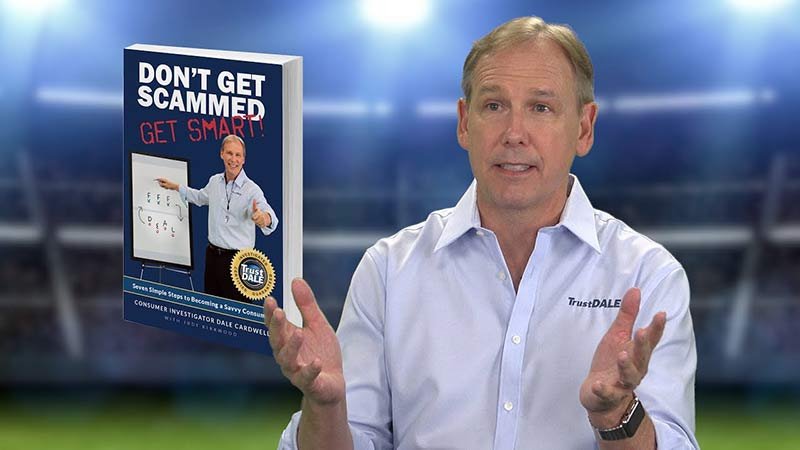Many movers operate outside of federal and state guidelines. How to choose the right one.
Feb 15, 2020 5:00 AM
There are lots and lots of moving companies out there. They range from a couple of people and a truck to large national companies. But how do you choose the right one? Did you know that some movers even operate outside of the federal and state guidelines? TrustDALE can help you find the right movers like our TrustDALE certified moving companies. To help, here are our top tips to check before you hire a mover.
![choose the right mover [infographic]](https://s3.amazonaws.com/cdn.trustdale.com/uploads/choose%20the%20right%20mover%20%5Binfographic%5D.jpg)
Get a Moving Inventory
Long before any mover starts to load items onto a truck, they will walk through your home and take an inventory of the items they will be transporting. The inventory is used to provide you with an estimate of the total moving cost. Movers charge based on the weight and cubic feet of material they move. So a detailed list of what is going is necessary to calculate an estimate. Make sure that the inventory is accurate. You could be charged extra for items that were left of the initial inventory.
Get a Detailed Walk-Through
The only way to get a reasonable estimate of moving costs is to do a detailed walkthrough of your home. If a mover isn’t detailed, they can miss items and prepare an incorrect estimate. Accompany the mover on their walkthrough to ensure they don’t miss anything. Open up closets, cabinets, and drawers. It’s just as important to make sure they know what isn’t going. If you will be getting rid of a bed, couch, or other furniture before your move, your mover needs to know that. Taking or leaving a large piece of furniture could significantly change your estimate.
Never Pay a Large Deposit
Many moving companies ask for a small deposit after you accept their estimate. The movers have to schedule movers and a truck to come to your home, and it can be costly for them if you cancel at the last minute. A small deposit ensures all parties that you are serious about the move date. However, if a mover asks for a substantial deposit or full payment upfront, it’s time to find another mover. You are trusting the movers with your belongings. As long as you have only paid a small deposit, you have control over your property, because you will only pay once it is safely delivered. If you pay upfront, nothing can stop a crooked moving company from holding onto your belongings longer than you’d like, or even asking for more money to complete the delivery.
Do a Little Research
Before you select a moving company, a small amount of research can keep you from falling for a scam. Some moving companies may be working outside of federal and state guidelines. Others may have a track record of poor customer service, cost overruns, or damaged belongings. Doing a little bit of research can help you steer clear of those movers.
First, check the Better Business Bureau. Look up the company and see if they have any complaints against them. In some cases, shady businesses may operate under multiple names to make it look like they have fewer complaints. Make sure that the company you plan to hire has a local address. When you call their local office, listen to make sure that the employees answer the phone with the full and correct name of their business. You should also ask for proof of current licensing and insurance.
It also pays to see what other people think of your movers. Ask for three references from jobs in your area in the last six months. Call the references and ask about their experience with this company. You can also ask your family and friends. Personal recommendations can be helpful. Finally, don’t forget to check out the certified movers on TrustDALE.com.
Make Sure You Know About Any Extra Fees
There are lots of things your movers could offer to do that are helpful, but that also cost a little extra. Depending on your situation, you may want help with packing. Movers can usually do some of the packing for you, but it can cost more than you might expect. Make sure before you get any help packing that you know the cost of labor and materials upfront. The same is true for unpacking. Movers can sometimes help by putting together furniture and other tasks that you might find difficult. The help can be worthwhile, but make sure you know what it costs before you start.
Another way to avoid extra fees is to do a thorough walkthrough and inventory before the estimate, and then stick to the inventory. Adding additional items can add extra costs.
Read Your Contract Carefully
Your contract sets out exactly what the moving company is promising to you. If it’s not on the contract, don’t expect it. Two critical parts of the contract are the price estimate and the inventory. The price estimate and inventory combined protect you from paying too much. After a complete walkthrough of your home, the movers draw up a detailed and complete list of everything they will be moving. At the end of the walkthrough, the movers prepare an estimate based on their inventory.
There are three types of contracts, and they affect how accurate your estimate is. A non-binding estimate is a best guess. The movers can charge you more on delivery day, but no more than 10% over the initial estimate. After delivery, you have 30 days to pay any overages. A non-binding to exceed estimate is the maximum amount you will pay for your move. There are no overages on a non-binding to exceed estimate. The third type of estimate is a binding estimate. A binding estimate is the exact price you agree to pay for the move. It includes all extras and fees.
If you leave an item of the inventory, you run two risks. First, the movers can and probably will charge extra for items not included in the initial estimate. Second, if you throw in an additional item without listing it on the inventory, there is no record that the movers ever had it. If they don’t return it, you have no recourse. Forgot to put an expensive item on the inventory? Don’t expect to get it back!
Report Problem Quickly
After your move, you have nine months to report any damage. After that, the movers are not liable for any damage from the move. The more quickly you can unpack your item and check for damage, the better position you are in to receive compensation.
By law, movers automatically include insurance on your move that covers the full value of your items. If an item breaks and the movers are at fault, the movers will either repair it, replace it, or pay for it. One important detail, however, is that this coverage does not include items that are worth more than $100 a pound. Items like jewelry, china, antiques, electronics, or other small but valuable items are only covered if you specifically mention them in the contract.
If you choose, you have the option to save a few bucks by selecting alternate coverage. In that case, coverage is limited to $0.60 a pound. There is no extra charge for this kind of coverage; however, you have to specifically ask for it in the contract. But be careful with the low-cost option. If you have a twenty five-pound television and your mover smashes it, they only owe you $15 with this coverage. TrustDALE does not recommend this coverage unless you are moving only items of low value that are not easily damaged.
Finding the Best Movers
Finding movers can be tough. There are dozens of movers in every market, but it can be hard to tell who is any good. Luckily, TrustDALE makes it easy. Select any TrustDALE certified mover, and you can be sure you are working with the best, most reliable, trusted movers in your area.


